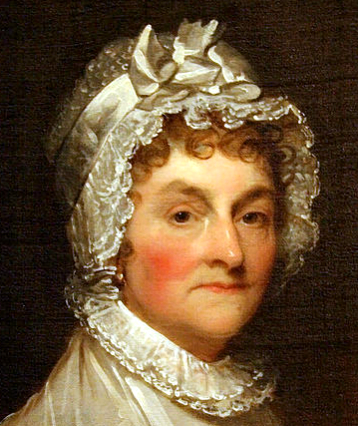Introduction
A different appreciation of George Washington, offered in a decidedly different tone, is contained in this letter (December 22, 1799) by Abigail Adams (1744–1818), written to her oldest sister, Mary Cranch (1741–1811). Adams was the wife of John Adams, the first Vice President and, at the time of this letter, the second President of the United States. One of her five children, John Quincy Adams, became the nation’s sixth president. Though not formally educated, Abigail Adams was taught to read and write at home, and took advantage of her family’s large library to become well versed in poetry, philosophy, and politics. When in 1774 John Adams went to Philadelphia to serve as a Massachusetts delegate to the First Continental Congress, she began the still famous lifelong correspondence with him. These letters, like the many additional letters she penned to friends and relations, tell us much about the Revolutionary and Federal eras and about the leading people and contested issues of our fledgling nation.
Here, despite the rift that had occurred between her husband and George Washington during Washington’s presidency, Abigail Adams conveys her enormously high regard for George Washington and what he meant to our country—though she cannot help referring at the end to “a successor filling his place, persueing [sic] the same system which he had adopted, and that in times which have been equally dangerous and Critical.” But Adams emphasizes something that Lee’s eulogy almost makes one forget, namely, that Washington was a human being with human frailties and human sufferings. Is it important that we remember these things about him, and, if so, why? Or is Abigail Adams’ account rather too private a view of the public man, less relevant to assessing the significance of his life for the nation? Is it really desirable that we “humanize” our heroes?



Post a Comment